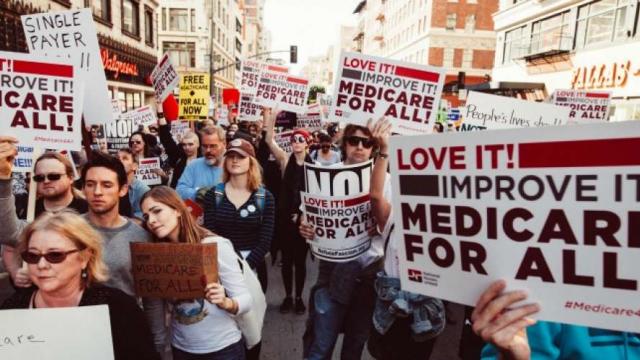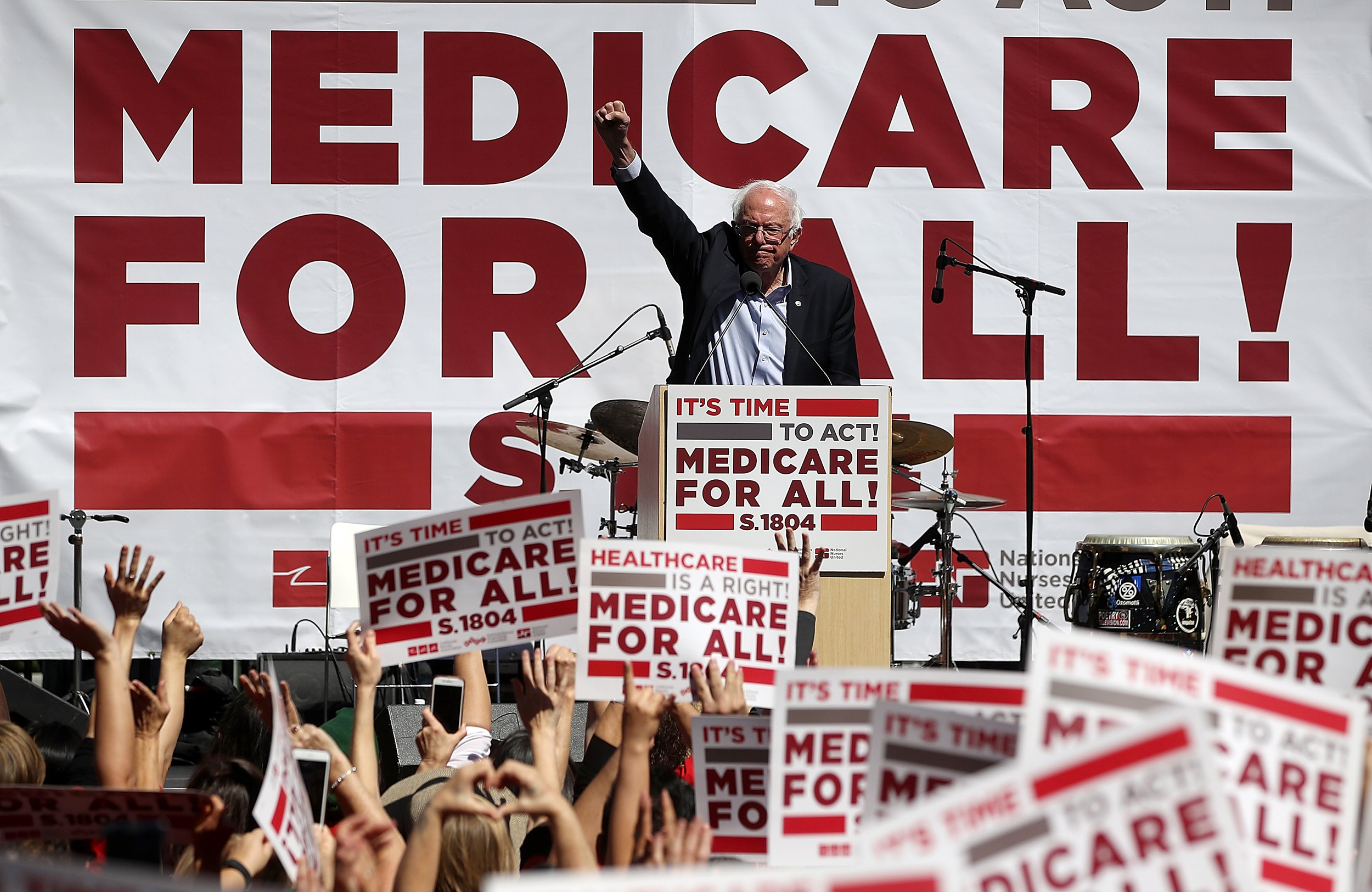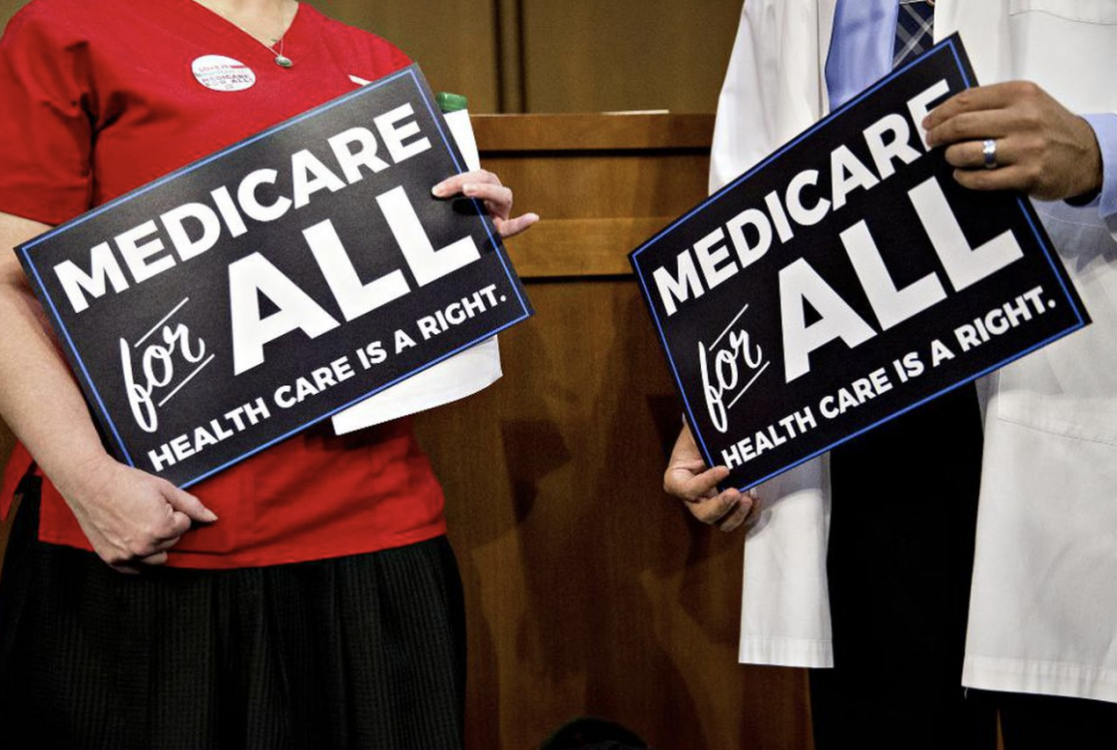
For all its uncertainties, American life has its reassuring traditions: Fall brings football, spring brings baseball, and proposals for universal health insurance bring healthcare-industry scare campaigns.
As the movement toward Medicare for All picks up steam, it’s happening again, right on cue. As The New York Times puts it: “Doctors, hospitals, drug companies and insurers are intent on strangling Medicare for all before it advances from an aspirational slogan to a legislative agenda item.” First, do harm.
This is an old, predictable corporate game driven by hackneyed arguments that make one wonder why, after a century of pushback against universal healthcare, its opponents can’t come up with something more original.
One answer is that the ahistorical American mind obviates invention, so the time-worn arguments work just fine. Among them: Universal coverage would be a first step toward Stalinism, toward healthcare by government bureaucrats, toward rationing, and so forth. You’ve heard all this before.
The powerful interests deploying these rhetorical decoys are the same as always, tarted up this time as a pious-sounding organization called the Partnership for America’s Healthcare Future, a coalition of hospital, insurance and pharmaceutical interests desperate to pre-empt any threat to their profits.
If they are pretty good at this, it’s because they’ve had at least a century of practice. During the Progressive Era, insurers and physicians defeated a state-level campaign by the American Association for Labor Legislation for compulsory insurance by stigmatizing it as “un-American” and a first step toward socialism.
During the New Deal the American Medical Association played a large role in keeping a national healthcare provision out of what became Social Security. In the post-war period the AMA, helped by a paid propaganda firm known as Campaigns, Inc., killed a landmark compulsory-insurance proposal in California and then torpedoed Harry Truman’s call for national healthcare, partly through red-scare tactics that were gaining purchase as the Cold War intensified.
The same forces opposed a Kennedy proposal for what would become Medicare – perhaps the single most important piece of coverage-expanding legislation – passed largely because of an activist political climate created by Kennedy’s own death.
But that setback didn’t shut down the industry propaganda machine. In the 1990s it sabotaged the Clinton proposal for universal access with what is surely the acme of corporate disinformation, the Harry and Louise ads featuring a fictional couple fretting at the kitchen table about the horror of “HillaryCare.”
In 2009 it exploited the “death panels” myth to fight Obamacare, which it tailored to meet industry needs after making sure that single payer (a.k.a. Medicare for All) and a public option were never on the table.
Even today the S-word remains a hardy perennial, as the reliably obtuse Mike Pence showed last week, assuring his audience that Medicare for All leads in a straight line to Venezuela.
The healthcare industry now argues that Obamacare is working well and shouldn’t be tampered with or supplanted by a new system. That’s disingenuous on two counts. First, the same industry once waged a covert, $100 million war against Obamacare, so invoking its virtues now looks like a particularly cynical ploy.
Second, even Obamacare leaves about 9 percent of the population, or 28 million people, uncovered. That’s because it is, naturally, a political compromise that from the outset foreclosed on the possibility of universal coverage in order to win congressional approval. There are ways to achieve universal coverage – single payer or public/private systems such as in Japan or Germany – but the healthcare industry declared them inadmissible during the debate over Obamacare.
It likewise vetoed a public option, partly because private insurers feared competition but also, one suspects, to allow for the legal challenge that the Supreme Court resolved in 2012. That’s when the law’s opponents argued in part that it forced people to buy a private product, an untenable case if there’s a public alternative.
It’s hard to believe that the U.S. is still arguing about how, or even whether, to cover everyone when the rest of the industrialized worldguarantees universal healthcare. But rest assured, there is a surefire way for Americans to secure guaranteed healthcare: They can get themselves incarcerated. Prisoners are the only Americans who have a constitutional right to healthcare. Whoever said crime doesn’t pay never had a pre-existing condition.
Chris Gay is a veteran of financial journalism who writes from New York. Follow him @cgayNYC













